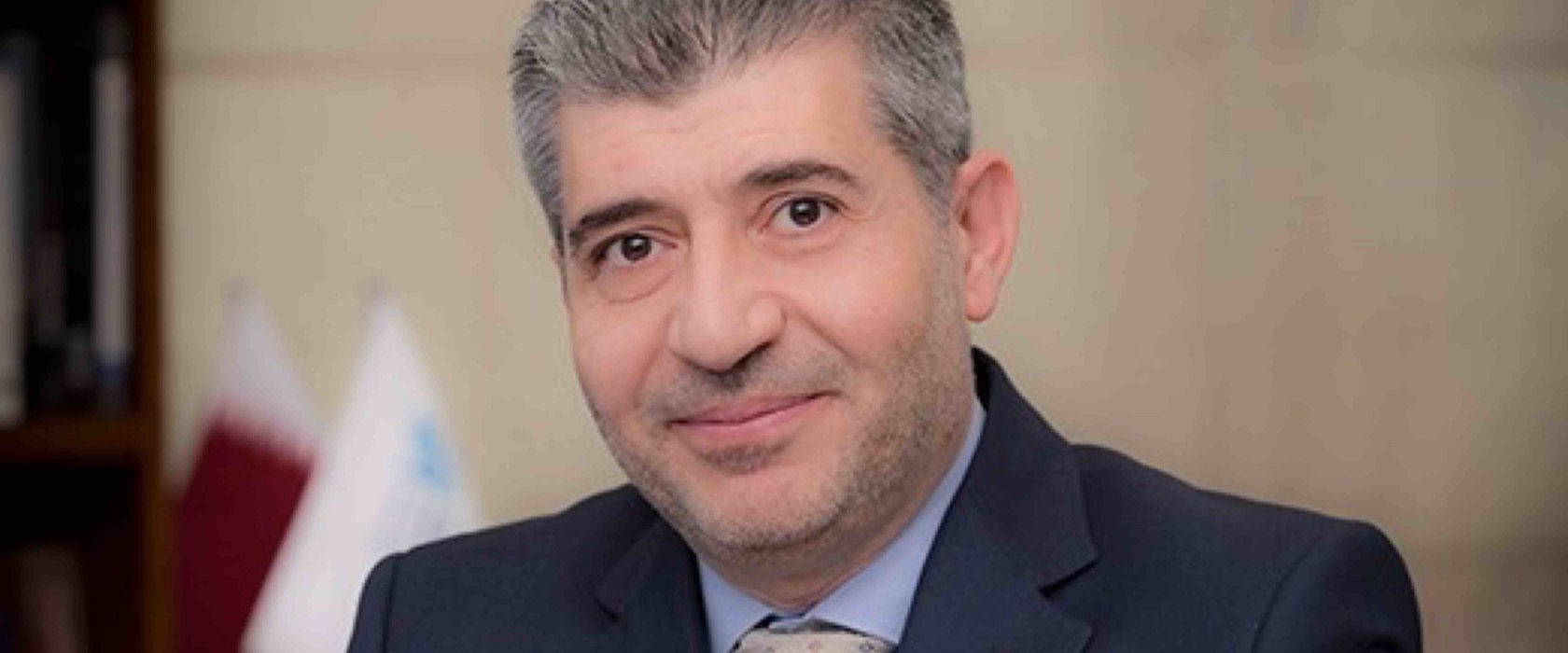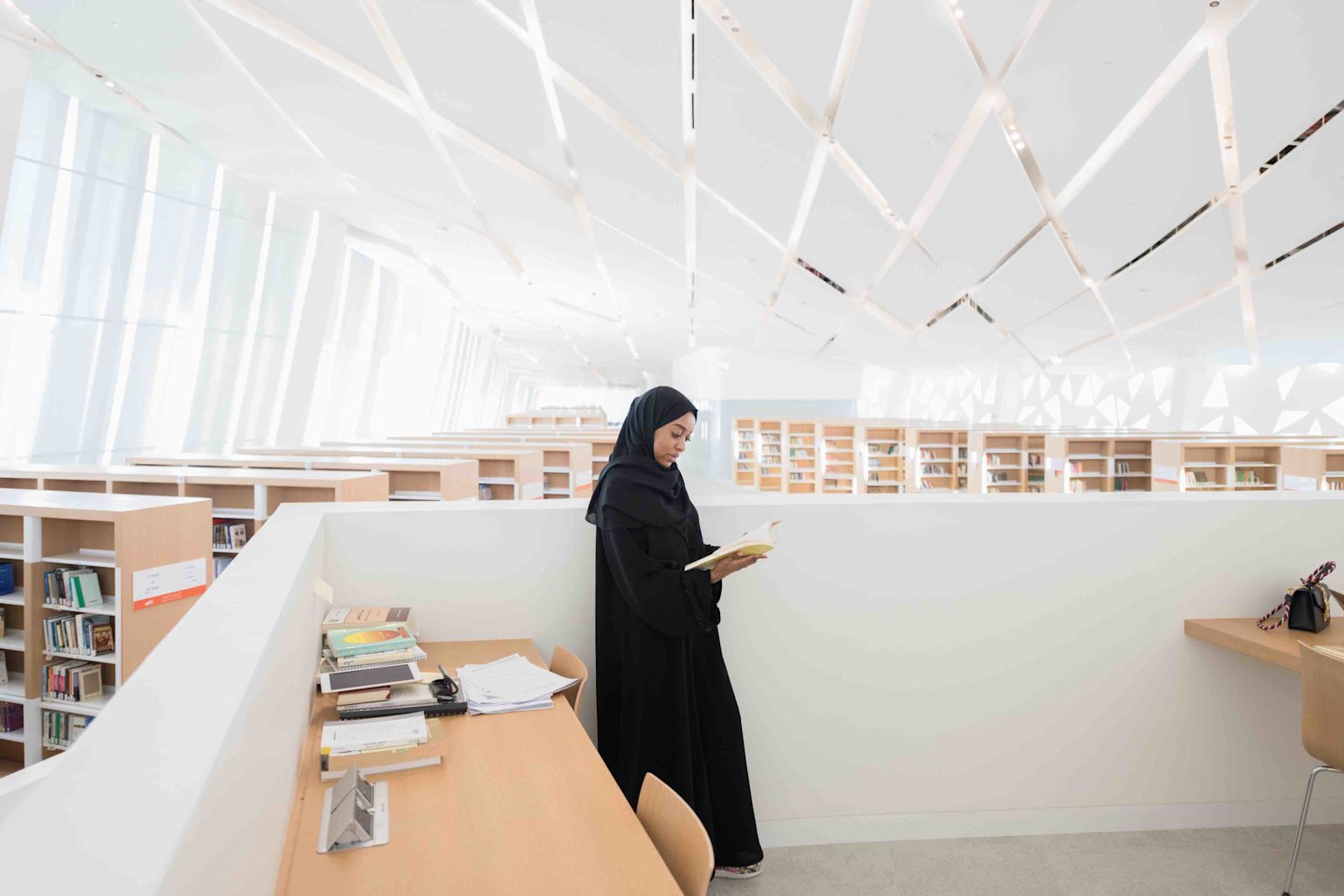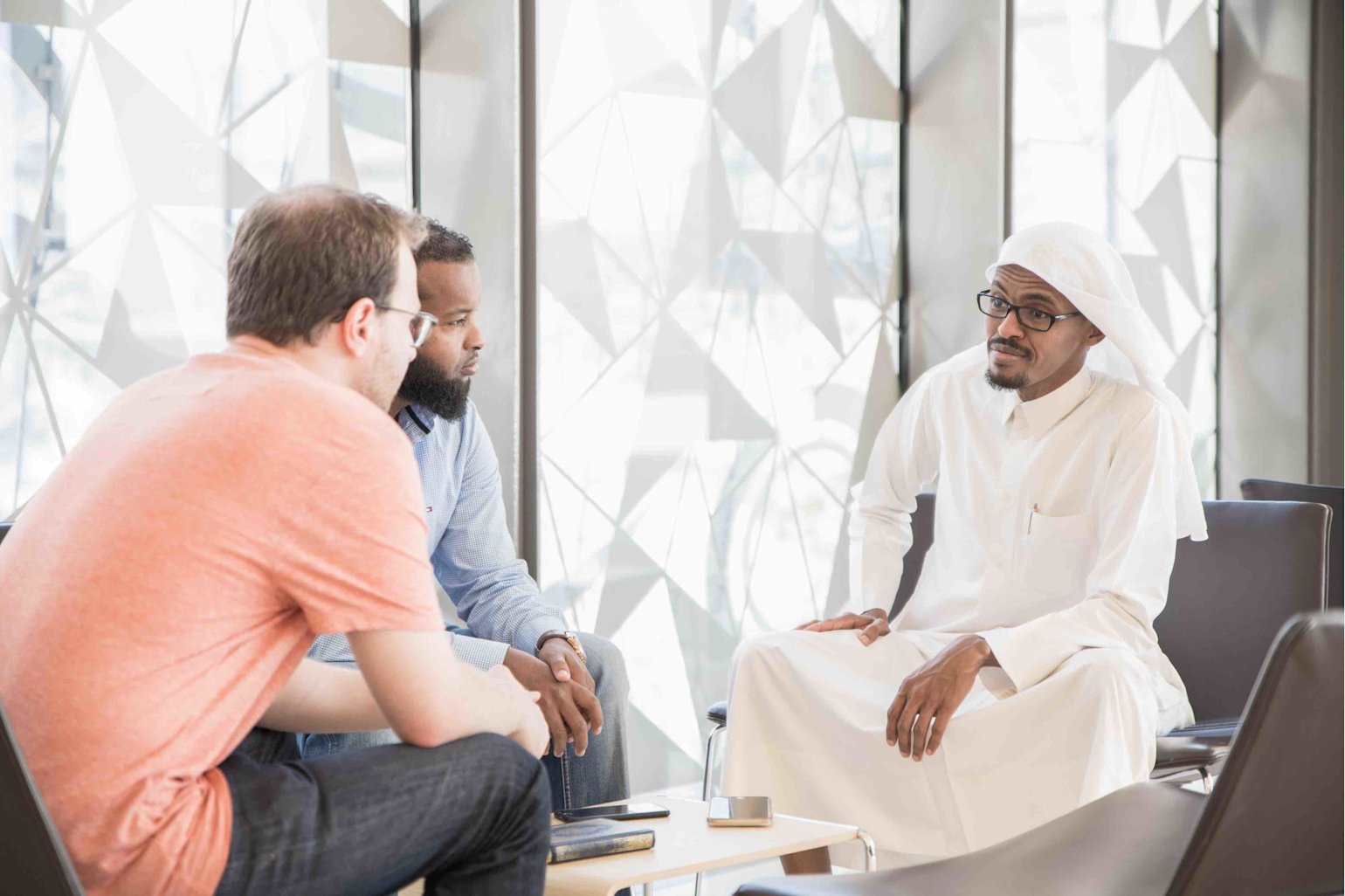Coronavirus (COVID-19) Updates
For the latest COVID-19 information and updates from Qatar Foundation, please visit our Statements page

Dr. Ahmad M. Hasnah, President of Hamad Bin Khalifa University.
As a new batch of graduates emerge from universities at QF, Dr. Ahmad M. Hasnah, President of Hamad Bin Khalifa University (HBKU) – a QF member – speaks about disrupting education, opening up opportunities for young people to drive impact, and designing learning for the future
HBKU has successfully shifted to remote learning since the beginning of the COVID-19 pandemic. How would you describe this experience so far? And how did QF’s technology and resources enable you to continue the educational process?
Hamad Bin Khalifa University (HBKU) is a part of Qatar Foundation’s (QF)’s educational ecosystem, which is based on the continuous development of education, and looking ahead to the future through the achievements of the present. Being within this ecosystem meant we already had established plans to respond to change.

HBKU’s graduating classes of 2020 and 2021.
Within the unique environment of QF – with its technological infrastructure; capacity for resilience and ability to keep pace with change; readiness to deal with crises; and support for development and creativity – we achieved the transition to e-learning within a short time while maintaining the same quality of education.
I believe that the future of education will be a blended approach that combines students’ presence in the classroom, and online discussions and group work
This is the positive aspect, but we also need to consider the human and social interaction between the student and their surrounding environment. I believe that the future of education will be a blended approach that combines students’ presence in the classroom, and online discussions and group work.
Opportunities have now also been created for HBKU to attract new students, faculty members, researchers, and experiences from around the world without the need for them to be inside Qatar. This greatly supports the educational process and improves the quality of education within QF’s ecosystem of knowledge and learning.
HBKU was established in 2010 as a national university that would also serve as a hub of research aimed at supporting multisectoral development in Qatar and the region. A decade on, how is the importance of research embodied in HBKU’s educational process? And what opportunities does research open for youth?
Our world is witnessing rapid changes, and it is anticipated that, in the future, we will see even faster changes in the education and career sectors. In the past, we were used to experiencing qualitative shifts, but across long periods. Today, change is accelerated and occurs within short periods of time, especially since Artificial Intelligence is playing an essential role in the educational process.
Our mission is to produce graduates who can conduct research, and who possess a diverse range of knowledge that spans many fields, alongside their in-depth knowledge in their area of specialization
Our mission is to produce graduates who can conduct research, and who possess a diverse range of knowledge that spans many fields, alongside their in-depth knowledge in their area of specialization. Students should not be relying only on the content they learn from lectures or textbooks, but building their personalities and their learning on the basis of research, exploration, and constructive, critical thinking.

Dr. Hasnah speaking at HBKU’s virtual graduation ceremony for its classes of 2020 and 2021.
Scientific research also develops students’ skills and opens up new opportunities for them to become active citizens and make a positive impact in their countries, by enabling them to address and find solutions for major national challenges such as climate change and cybersecurity.
Research also ensures that what students are studying is not limited to the theoretical aspect, but includes practical experience. To give one example within HBKU, our sustainable energy program enables engineering students to learn about renewable energy, while also enabling public policy students to learn how they can formulate public policies related to sustainability, and law students to understand the foundations of legislation related to sustainability. This is how our graduates acquire knowledge in various scientific and societal aspects, as well as their own area of specialization.
Enabling students to support Qatar’s sustainable development agenda is a priority for HBKU. How do you design your programs to fulfil national needs? And how are your programs related to the FIFA World Cup Qatar 2022™?
We do not only consider current national needs, but also the future needs of Qatar, and we keep pace with the strategic direction of the nation
HBKU designs its programs by looking to the future. We do not only consider current national needs, but also the future needs of Qatar, and we keep pace with the strategic direction of the nation.
The FIFA World Cup Qatar 2022™ is a milestone within a long-term national sports strategy centered on Qatar’s role as an active player in sports within the region and the wider world. This requires the right talent and competencies, which is what HBKU’s programs are designed to nurture.
For example, our Master of Science (MS) in Sport and Entertainment Management aims to foster competencies that Qatar requires and that align with the country’s strategy, alongside our MS in Exercise Science program, and the research studies that we conduct in the field of sports. We are also currently looking to launch a future educational program dedicated to physiotherapy, in line with the efforts of Qatar’s Aspire Zone Foundation and Aspetar to enhance the landscape of sport-related knowledge across Qatar.
At HBKU, we also offer an MS in Cybersecurity program in line with global, regional, and national challenges; and an MS in Genomics and Precision Medicine that supports Qatar’s mission to become a regional pioneer in this field. We also offer programs designed to support digitization in the health sector – such as our Master of Data Analytics in Health Management – among many others that are designed to align with Qatar’s national strategy in various fields, including those related to science.

HBKU students build their knowledge and personalities through “research, exploration, and constructive, critical thinking”, says Dr. Hasnah.
The way HBKU aligns its priorities with Qatar’s strategy can be seen in scientific fields, but also social and cultural areas, which reflects how community development is at the core of Qatar Foundation’s mission. Please could you tell us about HBKU’s contributions in this regard?
At HBKU, we consider ourselves to be an integral part of Qatar’s community, and we continuously seek to support the development and growth of this community through our activities and educational programs.
HBKU also pays great attention to stimulating creativity by empowering entrepreneurs, as we believe this has a positive impact on society
One example is our Master of Arts (MA) in Women, Society and Development program, which emphasizes the role and contributions of women in advancing development in an Arab-Islamic context. We also offer an MA in Digital Humanities and Societies, aimed at responding to the human and social challenges we face in this era of digitization and how societies can address these. And our MA in Applied Islamic Ethics – the first of its kind in the world – addresses how Islam, as a world religion with a rich moral heritage, engages with and contributes to global moral discourses, with the inspiration for this program coming from Qatari society.
HBKU also pays great attention to stimulating creativity by empowering entrepreneurs, as we believe this has a positive impact on society, whether through the establishment of small and medium-sized companies, the development of public policies, and the social and economic benefits associated with entrepreneurship that help to advance our nation’s community.
You spoke about how HBKU designs its programs by looking ahead to the future. What are HBKU’s future aspirations and goals as part of QF’s higher education ecosystem?
One of our top priorities for the future is the disruption of education: offering models which stretch beyond the traditional notion and context and education, not only in higher education, but also at the primary education level. Our goal is to create educational opportunities that contribute to cultivating people who are able to address the challenges of the future, not just the challenges of today.
We are, for example, working to develop our HBKU Network initiative that enables employees in public institutions, ministries, and other bodies to benefit from the lectures and discussions that we organize at HBKU, in order to help them gain knowledge on topics of interest to them outside the path of obtaining an academic degree with us.
Today, we provide knowledge and promote a culture of lifelong learning through educational platforms such as edX, as well as through the Mini-Master’s programs that we offer. The presence of HBKU within the educational ecosystem of QF, among a number of prestigious international partner universities, schools, and centers such as Qatar Science & Technology Park, gives us a great opportunity to provide an educational experience that is built on personalized learning and the desire to learn, where students can choose their own learning path, and explore different areas,
It is an experience that can’t be found anywhere else in the world, offering something markedly different to the traditional educational path that many have had to follow in past through the lack of an alternative option.
At QF, we believe that the people are our world’s most valuable resource, and that this will remain the case in all ages and times
As HBKU looks to realize its future vision, what are the main foundations and principles that will drive the university forward?
The vision of QF is, and always has been, supportive of development, creativity, proactive thinking, and cooperation between its entities, partner universities and initiatives, as we work in tandem to support the development of Qatar and its people.

Education at HBKU offers practical experience as well as theoretical learning.
Humanity has gone through different stages. Once, the commodities with the greatest values were gold and other minerals, then oil and gas. Today, we have recognized that knowledge has the truest value, and data represents the real wealth. At QF, we believe that the people are our world’s most valuable resource, and that this will remain the case in all ages and times.
That is why we are committed to unlocking people’s human potential, so that our graduates and researchers become producers of knowledge, and to continuing our progress so Qatar become an exporter of knowledge.

